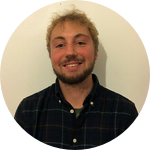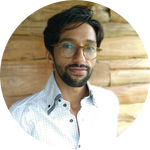About This Project
Climate change is exerting a substantial impact on agriculture-based livelihood communities such as Indonesia. Most of the economy of the local communities relies on monoculture (e.g. rice) which is related to massive use of fertilisers, strong dependence on fossil fuels, and soil erosion. In this context, the goal of the project is to develop a spatial optimization framework to identify the optimal location and required features of regenerative agricultural systems replacing monocultures.
Ask the Scientists
Join The DiscussionWhat is the context of this research?
Unprivileged communities lack sufficient access to food in total or in the variety of food needed to fulfil daily nutritional requirements. Their condition is threatened by climate change due to its adverse effects on food access, utilisation, and price stability. The association between extreme weather conditions and food price increases has been already documented. Climate change will keep on increasing food insecurity and inequalities between and within communities. In this scenario, regenerative agriculture’s ability to contribute to food security and counter climate change is widely claimed, but extensive studies that develop and explore country-wide scenarios with the wealth of available high-resolution spatially-detailed datasets, are lacking.
What is the significance of this project?
This project will enable farmers, policymakers and civil society, to explore the alternative scenarios in which monoculture croplands are replaced by regenerative agriculture systems and their role in countering inequalities and mitigating climate change at the community level all over Indonesia. This, in turn, contributes to informing decision making by land managers, farmers and policymakers.
Although the project will be focused on Indonesia, the approaches and the tools that will be developed and used are meant to be replicable and scalable elsewhere. Hence, the analysis will be based on open access data and all the data and code will be made freely available on Github, allowing anyone to use or adapt the framework.
What are the goals of the project?
The project has two main goals. First to provide a planning-oriented, inequality-focused analysis of Indonesia’s food security and accessibility. Second, to develop a spatial framework to identify the optimal location and required features (e.g size, agronomic productivity) of regenerative agricultural systems to replace monocultures and ensure food accessibility to the nearest local communities.
Budget
At the moment, I don't have any additional external funding. This budget outlines the essential costs to collect and combine data from multiple sources and to develop and run the algorithm that will identify the optimal location and required features (e.g size, agronomic productivity) of regenerative agricultural systems. The researcher's costs include project time and management, analyzing literature, and drafting an academic paper. The estimated cost of submitting an academic paper to a peer-reviewed journal is $1500, though the fees may vary depending on the journal.
Endorsed by
 Project Timeline
Project Timeline
The project will start in the second trimester of 2022 and take approximately six months to complete.
May 1st - July 31st: Collect population distribution maps, agrometeorology data, food production estimations and gridded friction surface data. Combine all the data to explore inequalities in food access and define a GIS-based optimization routine to balance access to food.
August 1st - October 31st: Academic and divulgation writing. Submit an academic paper to a peer-reviewed journal.
Apr 21, 2022
Project Launched
May 31, 2022
Data collection and combination
Jul 31, 2022
Algorithm Development
Oct 31, 2022
Dissemination of the research findings through specialised academic journal
Meet the Team
Ahmed T. Hammad
Ahmed is a Data Scientist, Quantitative Researcher and Program Evaluator. He has a PhD in Applied Machine Learning and Econometrics and extensive experience in both the academic and private sectors.
During the last few years, he has been applying his knowledge as a freelancer to build monitor and evaluation systems for environmental programs. Using Econometrics, Artificial Intelligence, and Satellite Imagery he developed an Early Warning System for Flood Prediction in Timor-Leste and a Monitoring Landfill system in Indonesia, to aid rural communities and governmental organisations.
During his PhD, he focused on different applications of Machine Learning techniques to estimate Program and Policy effects. He also contributed to the scientific literature by developing a multiobjective GIS framework for assessing the optimal allocation of new health care facilities in sub-Saharan Africa and by estimating the impact of COVID-19 on agricultural productivity in Bali, Indonesia.
He is extremely interested in how emerging technologies can be used to tackle social and environmental issues and generate tangible benefits.
Lab Notes
Nothing posted yet.
Project Backers
- 8Backers
- 10%Funded
- $700Total Donations
- $87.50Average Donation

